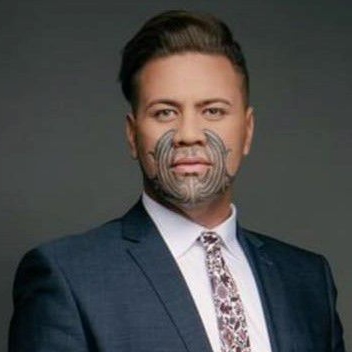NZ First Minister Shane Jones says a member’s bill is being drafted that would force a single Treaty settlement for Ngāpuhi, arguing that allowing hapū to settle individually would reduce the country’s largest iwi to “confetti.”
He says too much time and money has been wasted this far and a hapū-centric approach will never reach a settlement for the iwi.
“This will deliver to the 5 million plus New Zealanders, who don’t want to tolerate any more time wasting, destructive, debates about separate sovereignty.” He said.
It comes after the previous Labour Government included an “agree to disagree” clause in Te Whānau-ā-Apanui’s initial settlement, acknowledging the iwi’s view that they never ceded sovereignty.
But the new coalition Government refused to progress the settlement unless that clause was removed.
Jones, is determined to see a single, large-scale settlement for Ngāpuhi.
He pointed to the 2014 Waitangi Tribunal findings that Ngāpuhi never agreed to surrender sovereignty when they signed Te Tiriti o Waitangi, but argued that historic claims shouldn’t block practical progress.
“Of course the kōrero about mana and authority will continue, but right now, what Ngāpuhi needs is a strong, united economic future,” Jones said.
Jones described the idea of separate hapū settlements as a recipe for failure.
“I’ve seen it before, small, fragmented iwi structures that lack the financial muscle to make real change. That’s not what the North needs,” he said.
Jones confirmed NZ First will introduce a member’s bill later this year to require a pan-Ngāpuhi settlement, effectively blocking hapū from negotiating on their own.
Treaty Negotiations Minister Paul Goldsmith has already acknowledged the Government prefers a single commercial settlement but didn’t rule out other pathways.
Jones, who has long advocated for a united Ngāpuhi settlement, says the North’s dire social statistics demand urgent action.
“Te Tai Tokerau is carrying the burden of poor health, housing, and unemployment. The hapū-centric approach has left us stuck for 20 years and it’ll be the same in another 20 if we don’t change tack,” he warned.
But Ngāpuhi leadership isn’t so quick to dismiss hapū rangatiratanga.
Mr Jones says if necessary NZ First will campaign on it in the next election campaign.
“...because New Zealanders are heartly sick of the money wasted in endless debates where no concrete results come to pass.” Jones asserted.
In April, Ngāpuhi chair Mane Tahere told Q+A that deep kōrero is happening on marae, within hapū, about what a fair settlement looks like.
“It’s positive that our people are having these kōrero. But we have to be crystal clear — it’s not just about money. It’s about protecting our hapū, our mana, our reo,” Tahere said.
“We were stripped of our whenua. The wealth of this country was built on Ngāpuhi land, on the backs of our people. The deficits we carry are massive.”
Tahere said the real challenge is educating Ngāpuhi whānau about the full picture, and ensuring any pathway forward reflects the aspirations of the people.
“Settlement is about more than just a cheque. It’s about justice, reparation, and the future of Ngāpuhi. We need to weigh it up carefully.”
Last week Treaty Negotiations Minister signalling single commercial redress for Ngāpuhi, “Some groups will never settle.”
Minister Paul Goldsmith acknowledged last week some hapū within Ngāpuhi may choose never to settle their Treaty claims, but says the government’s push to conclude all settlements by 2035 remains firmly on track.
His comments were during Scrutiny Week, as Goldsmith and Justine Smith, CEO of Te Tari Whakatau, the Office of Treaty Settlements, and Takutai Moana fronted the Māori Affairs Select Committee.
When questioned by Green Party MP Steve Abel about whether setting an end date for Treaty settlements is realistic, Goldsmith replied that reaching an agreement requires both parties.
He added that he didn’t believe New Zealanders would accept a Treaty process that continued indefinitely.
“Well, ultimately, it’s not something that can be forced by any Government, to state the obvious. A settlement requires two parties to settle.
“I don’t think the patience of New Zealanders as a whole is infinite, and people do want to see this process completed,“ says Goldsmith.





